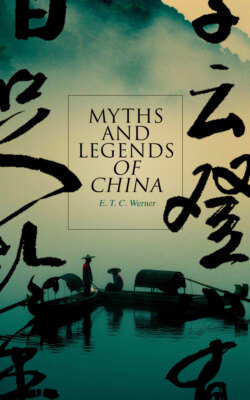Читать книгу Myths and Legends of China - E. T. C. Werner - Страница 38
На сайте Литреса книга снята с продажи.
Knowledge
ОглавлениеHaving noted that Chinese education was mainly literary, and why it was so, it is easy to see that there would be little or no demand for the kind of knowledge classified in the West under the head of science. In so far as any demand existed, it did so, at any rate at first, only because it subserved vital needs. Thus, astronomy, or more properly astrology, was studied in order that the calendar might be regulated, and so the routine of agriculture correctly followed, for on that depended the people's daily rice, or rather, in the beginning, the various fruits and kinds of flesh which constituted their means of sustentation before their now universal food was known. In philosophy they have had two periods of great activity, the first beginning with Lao Tzu and Confucius in the sixth century B.C. and ending with the Burning of the Books by the First Emperor, Shih Huang Ti, in 213 B.C.; the second beginning with Chou Tzu (A.D. 1017–73) and ending with Chu Hsi (1130–1200). The department of philosophy in the imperial library contained in 190 B.C. 2705 volumes by 137 authors. There can be no doubt that this zeal for the orthodox learning, combined with the literary test for office, was the reason why scientific knowledge was prevented from developing; so much so, that after four thousand or more years of national life we find, during the Manchu Period, which ended the monarchical régime, few of the educated class, giants though they were in knowledge of all departments of their literature and history (the continuity of their traditions laid down in their twenty-four Dynastic Annals has been described as one of the great wonders of the world), with even the elementary scientific learning of a schoolboy in the West. 'Crude,' 'primitive,' 'mediocre,' 'vague,' 'inaccurate,' 'want of analysis and generalization,' are terms we find applied to their knowledge of such leading sciences as geography, mathematics, chemistry, botany, and geology. Their medicine was much hampered by superstition, and perhaps more so by such beliefs as that the seat of the intellect is in the stomach, that thoughts proceed from the heart, that the pit of the stomach is the seat of the breath, that the soul resides in the liver, etc.—the result partly of the idea that dissection of the body would maim it permanently during its existence in the Otherworld. What progress was made was due to European instruction; and this again is the causa causans of the great wave of progress in scientific and philosophical knowledge which is rolling over the whole country and will have marked effects on the history of the world during the coming century.
